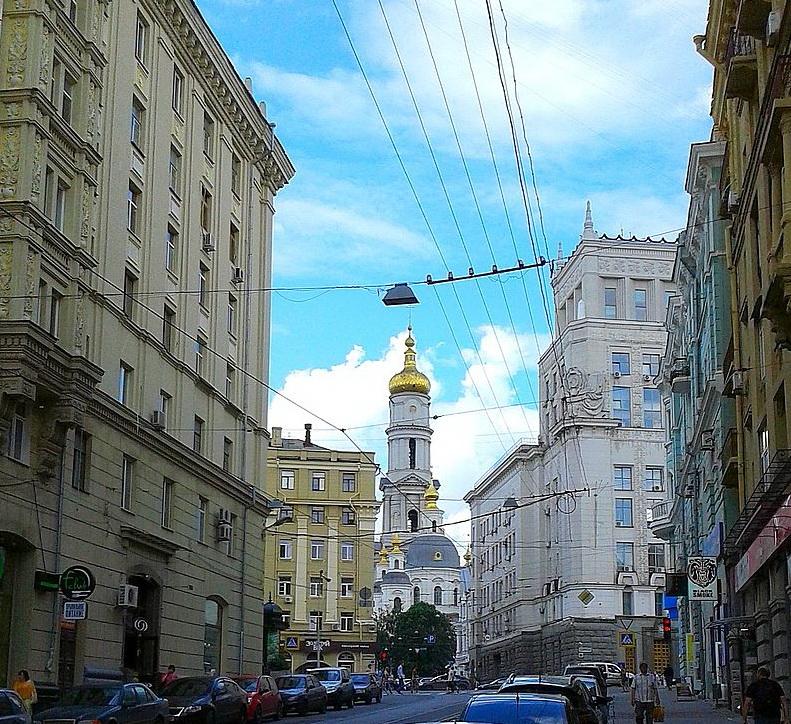Russia has attacked Ukraine and the ongoing military campaign causes progressively more damage in all walks of life, including cultural heritage. Monuments, archaeological sites, museums, archives, industrial heritage complexes, old and new residential districts, urban spaces, all part of local, national, European, and world heritage, are being destroyed in Ukraine. But cultural heritage is not just buildings and sites—it is people. It is their past for which they care in the present, to be able to pass it on to their children for generations to come.
Heritage is a resource for social cohesion and identity but also for the national, regional, and local economy. All intangible cultural heritage—traditions, knowledge, practices—is connected to physical places and reproduced within communities, providing them and their members with a sense of identity and continuity.[1] The Hague Convention and the related protocols contain specific measures on how to deal with cultural property in war,[2] but heritage is so much more: it is how people connect to, feel about, and identify with these sites. When heritage is destroyed, lives and communities are destroyed and the future is destroyed. This is why the European Framework Convention on the Value of Cultural Heritage for Society declares that every person has the right to engage with the cultural heritage of their choice, while respecting the rights and freedoms of others. This is one of the crucial aspects of the right to freely participate in cultural life, as enshrined in the United Nations Universal Declaration of Human Rights and guaranteed by the International Covenant on Economic, Social and Cultural Rights.[3] The Russian invasion of Ukraine is violating these fundamental rights.
When we, faculty, students, and alumni of the CEU Cultural Heritage Studies Program stand up for heritage, we stand up for people.
We condemn this war and join all those who demand that President Putin immediately withdraws his military forces from Ukraine. We express our deepest concern for members of the CEU community from Ukraine, Russia, and Belarus who are in danger now and whose family, friends and colleagues are threatened by this war and the political situation. We call on every member of the international academic community to join us and stand up for the values declared by international conventions and the mission of our university.
József Laszlovszky, Professor, Program Director
Dóra Mérai, Postdoctoral Fellow, Lecturer
Volodymyr Kulikov, Program Manager, also Professor at V.N. Karazin Kharkiv National University
Ágnes Drosztmér, Academic Coordinator
Daniel Ziemann, Associate Professor, Department Head, Department of Medieval Studies
Zsuzsanna Reed, faculty
C. Timothy McKeown, faculty
Cristian-Nicolae Gaşpar, Lecturer
Katalin Szende, Professor
Alice Choyke, Associate Professor
Gabriella Ivacs, faculty
Zsuzsanna Szálka, faculty
Eszter Spät, faculty
Zsuzsanna Árendás, faculty
Volker Menze, Associate Professor
Irina Leca, MA student, Romania
Tinatin Baghashvili, MA student, Georgia
Nana Twumasi-Ntiamoah, MA student, Ghana
Chinara Majidova, alumna, Azerbaijan
Aleksandra Ćwik-Mohanty, alumna, Poland
Eszter Jakab, alumna, Hungary
Samten Yeshi, alumnus, Buthan
Aleksandar Pantic, alumnus, Serbia
Konstantin Novakovic, alumnus, Serbia
Karen Culver, alumna, UK/Hungary
Joseph Pieterson, alumnus, Ghana
Vera Budai, alumna, Hungary
Sanijela Stulic, alumna, Serbia
Nóra Ujhelyi, alumna, Hungary
Gergő Paukovics, alumnus, Hungary
Flavia Matei, MA student, Romania
Zsófia Maróti, alumna, Hungary
[1] UNESCO Convention for the Safeguarding of the Intangible Cultural Heritage, 2003
[2] The 1954 Hague Convention for the Protection of Cultural Property in the Event of Armed Conflict and its two (1954 and 1999) Protocols
[3] Faro Framework Convention on the Value of Cultural Heritage for Society, Council of Europe, 2005
